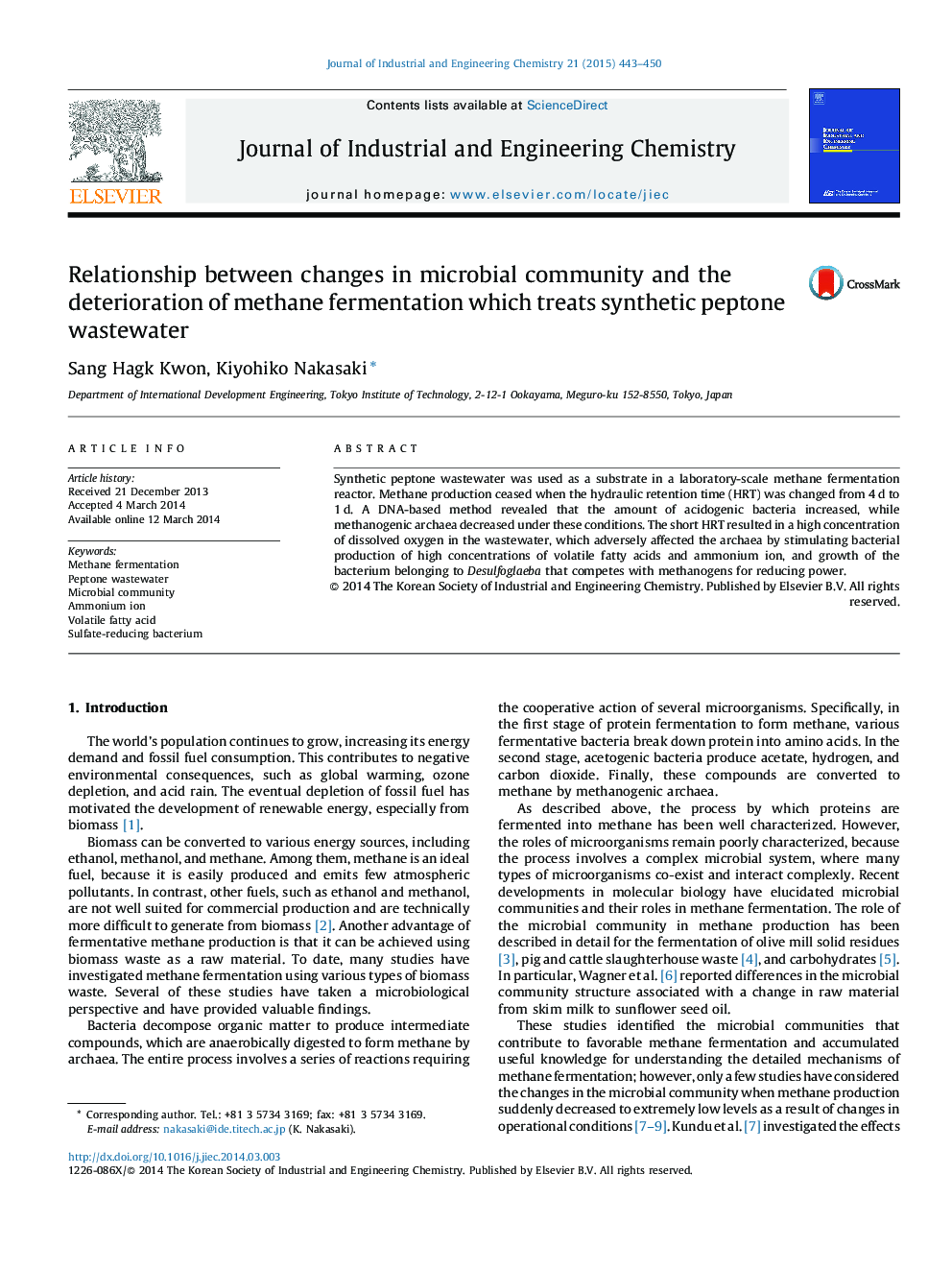| Article ID | Journal | Published Year | Pages | File Type |
|---|---|---|---|---|
| 226936 | Journal of Industrial and Engineering Chemistry | 2015 | 8 Pages |
Abstract
Synthetic peptone wastewater was used as a substrate in a laboratory-scale methane fermentation reactor. Methane production ceased when the hydraulic retention time (HRT) was changed from 4 d to 1 d. A DNA-based method revealed that the amount of acidogenic bacteria increased, while methanogenic archaea decreased under these conditions. The short HRT resulted in a high concentration of dissolved oxygen in the wastewater, which adversely affected the archaea by stimulating bacterial production of high concentrations of volatile fatty acids and ammonium ion, and growth of the bacterium belonging to Desulfoglaeba that competes with methanogens for reducing power.
Keywords
Related Topics
Physical Sciences and Engineering
Chemical Engineering
Chemical Engineering (General)
Authors
Sang Hagk Kwon, Kiyohiko Nakasaki,
